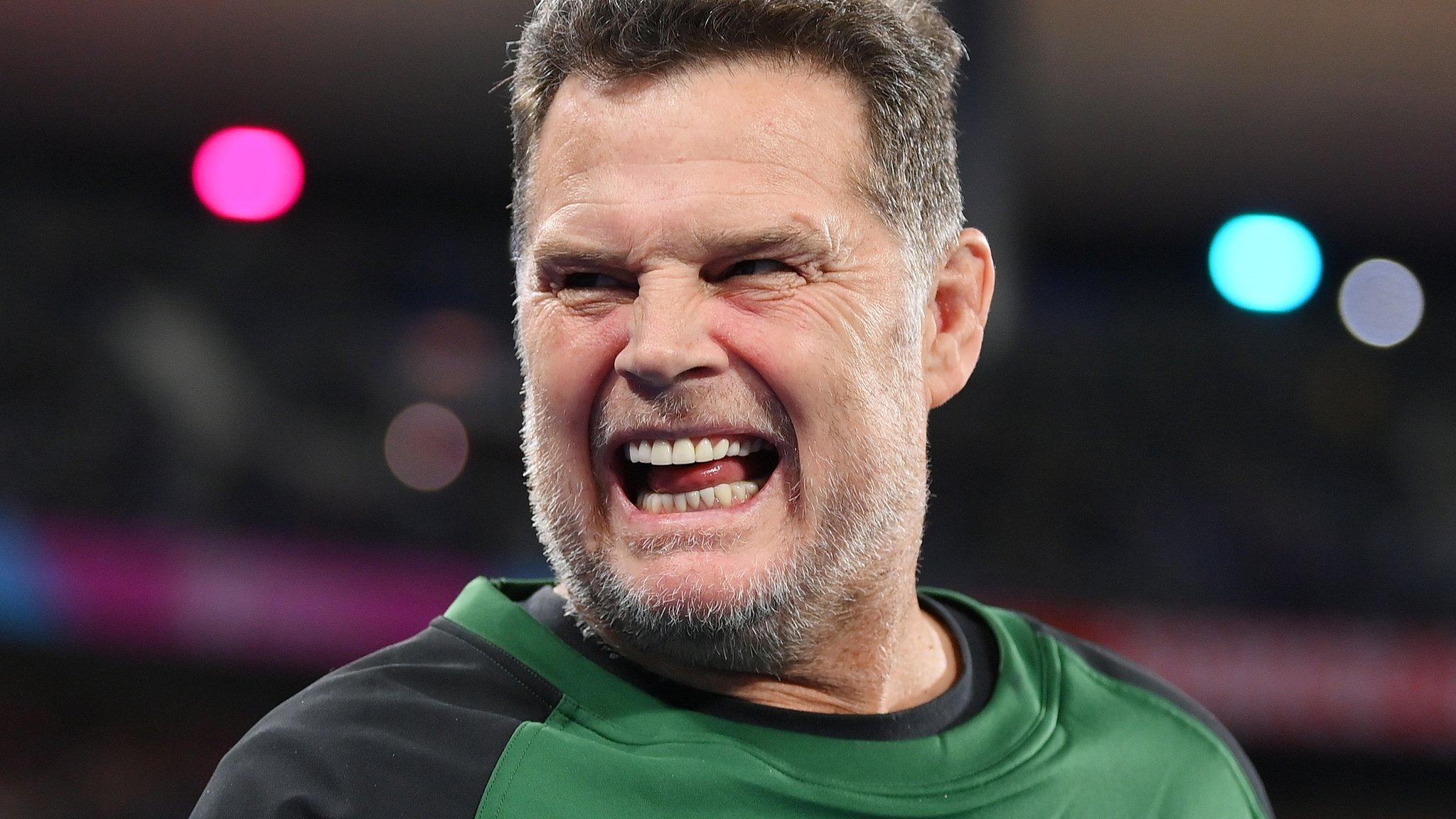Etzebeth can reach 150 Test caps - Matfield
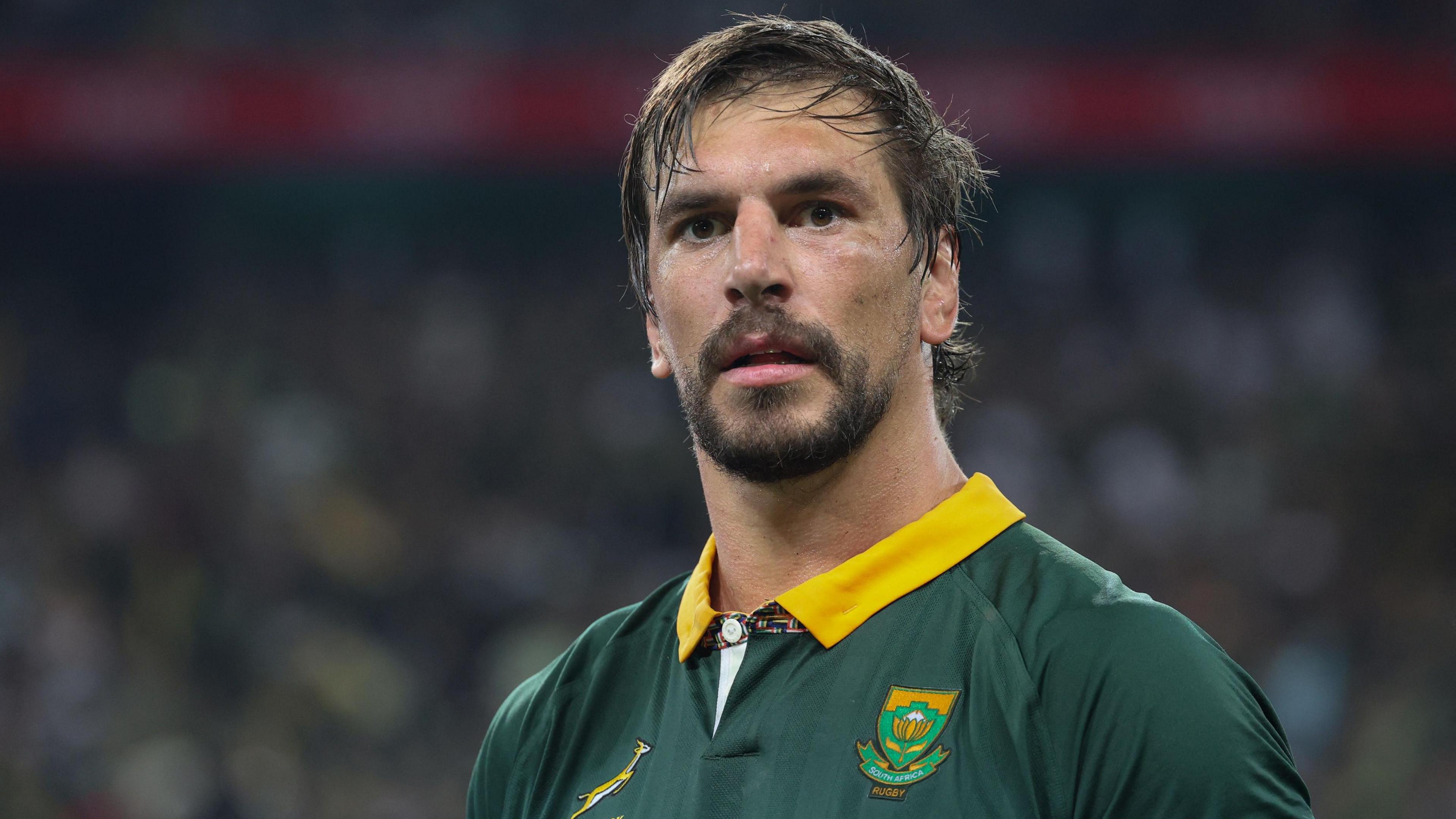
Eben Etzebeth made his South Africa debut in 2012
- Published
Eben Etzebeth can go on to reach 150 Test appearances for South Africa after becoming the country's most-capped player, according to the previous record holder Victor Matfield.
The 32-year-old lock made his 128th international appearance in Saturday's 48-7 victory over Argentina which saw the Springboks win the Rugby Championship for the first time since 2019.
His name and cap number were set on fire on the pitch before kick-off in Mbombela and fellow lock Matfield, who held the national record for just over a decade, later presented the Sharks man with a ceremonial cap.
"Eben is a great guy to take that mantle over. What he has done for South Africa on and off the field is just amazing," Matfield told BBC Sport Africa.
"Eben is probably one of the best players that has ever worn the green and gold jersey.
"He deserves it and I think he will go close to 150 Test matches. I think his record is going to stand for a long time."
What have we learned from the Rugby Championship?
- Published29 September 2024
Why Rugby World Cup win means more to South Africa
- Published30 October 2023
Only two players have ever reached 150 Test caps - and like Etzebeth and Matfield both are second row forwards.
Wales and British and Irish Lions great Alun Wyn Jones is the most-capped rugby union international of all time with 171 outings, while Sam Whitelock represented New Zealand on 153 occasions.
Meanwhile, Australia prop James Slipper (140), All Blacks fly-half Beauden Barrett and Ireland prop Cian Healy (both 131) are the only active players ahead of Etzebeth on the all-time list.
"We never really play the game for records," added Matfield. "It is more [about] winning trophies and having great times with friends."
Coincidentally, Etzebeth overhauled Matfield's tally of appearances at the same stadium where the 2007 Rugby World Cup winner claimed the Springbok record in June 2014.
"His (Etzebeth's) record won't take anything away from my 127 [caps]. I'm very proud of it and had fantastic times with the Boks."
Reclaiming number one spot
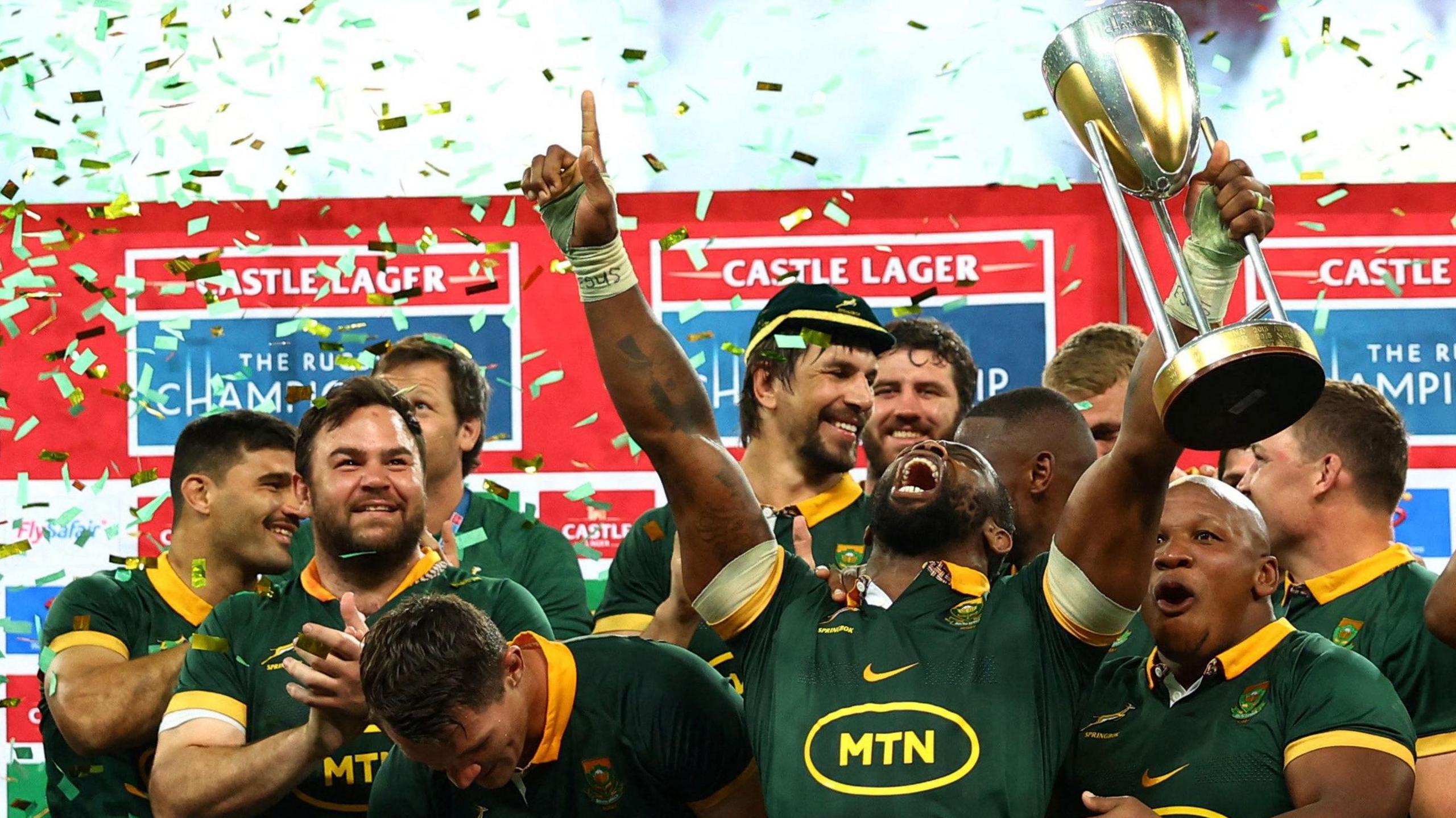
South Africa are holders of the Rugby World Cup and Rugby Championship but are behind Ireland in the men's world rankings
South Africa surrendered their number one ranking to Ireland after falling to a 29-28 defeat against Argentina in their penultimate game in the Rugby Championship.
However, Matfield believes the Boks remain the side to beat across both hemispheres.
"They are the double world champions, won the Rugby Championship and have beaten New Zealand four times in a row," the 47-year-old said.
"I can't see how they are not the number one team in the world. They are close to the best Springboks that have ever played the game."
Matfield points to the fightback against the All Blacks in the opening game of the Rugby Championship as proof that the current Boks are a "special" team.
South Africa trailed 27-17 at one point at Ellis Park before a late try from Grant Williams earned them a 31-27 win over their old foes.
"We were almost down and out in that game," Matfield said.
"This team has shown in the past that they can always come back and you must never write them off."
Rassie Erasmus' side will now have to produce positive results on the road against Scotland, England and Wales in November if they wish to return to the top of the world rankings.
Building for World Cup defence
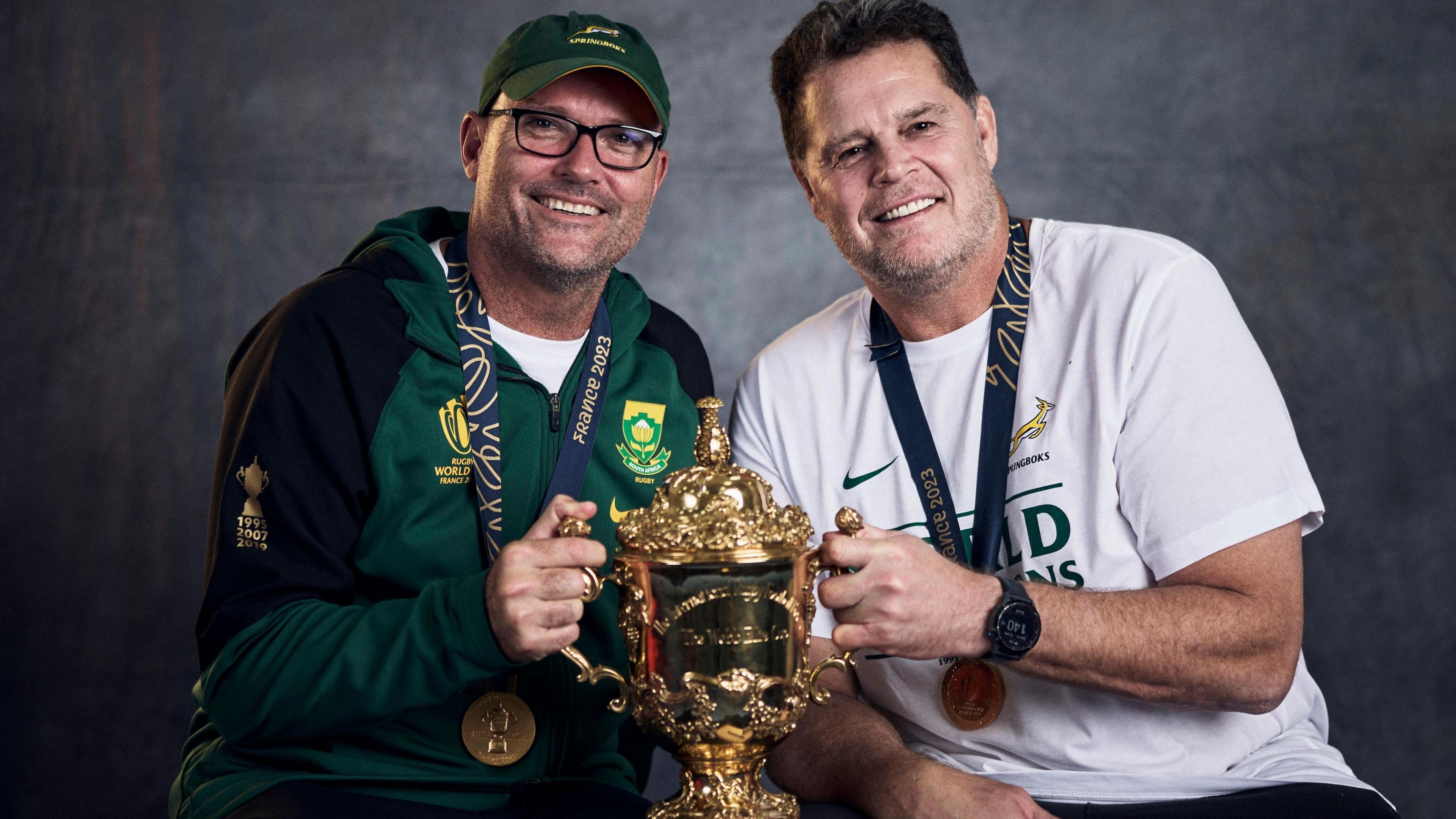
Rassie Erasmus (right) oversaw South Africa's Rugby World Cup triumphs in 2019 and 2023, even if Jacques Nienaber (left), now in charge at Leinster, acted as head coach for the latter victory
The future looks bright for Erasmus' side and, should they maintain current performance levels, the Boks will be serious contenders to win a third consecutive World Cup in 2027 - something that has never been done before.
Matfield credits the South African school rugby system and a large pool of youth players as being key elements in their dominance, and believes the fact that some Boks stars are playing abroad has also inadvertently boosted the domestic game.
"The base that we pick from these days is bigger than years back," the former Bulls, Toulon and Northampton man said.
"With more Springboks playing outside the country, there is also more money to spend on development.
"Now we are a diverse team from everywhere in South Africa. The game is growing everywhere."
That increased diversity means the team now has supporters from ethnic groups across all parts of the country, something which was not the case during the 1995 and 2007 Rugby World Cup wins when the team was still mostly made up of white players.
Related topics
- Published6 February 2024
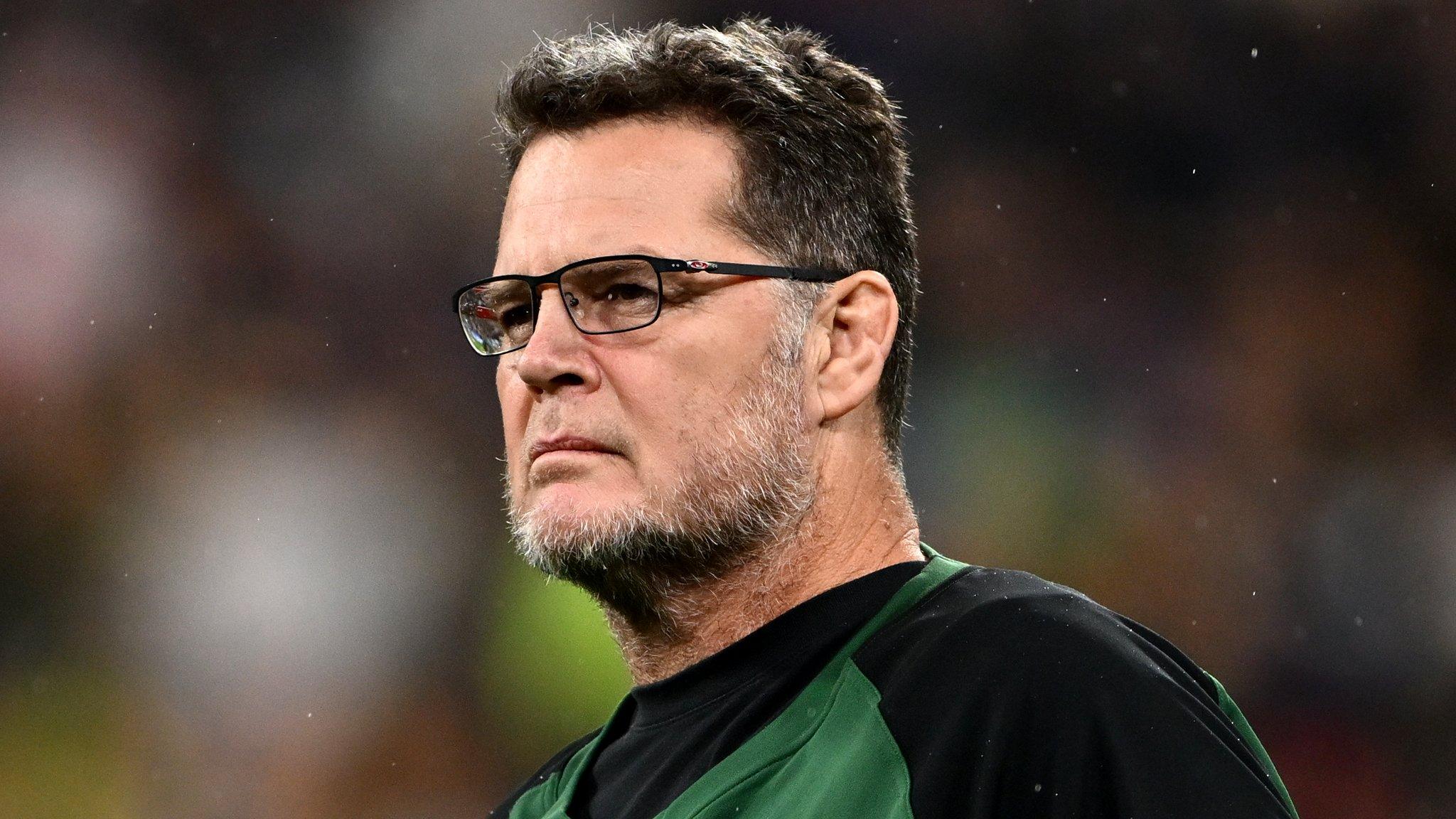
- Published25 October 2023
